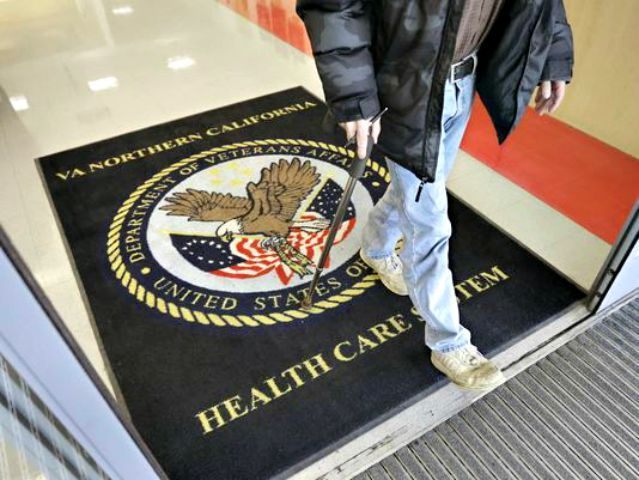WASHINGTON, D.C. — The U.S. Office of Special Counsel (OSC), responsible for overseeing whistleblower disclosures and investigating whistleblower retaliation throughout the federal government, expects to receive over 1,400 “prohibited personnel practices complaints” from Department of Veterans Affairs (VA) employees in 2015 alone.
That revelation was made today by Carolyn Lerner, OSC special counsel, in written testimony prepared for a Senate Homeland Security and Government Affairs Committee hearing, titled, “Improving VA Accountability: Examining First-Hand Accounts of Department of Veterans Affairs Whistleblowers.” Lerner wrote:
Government-wide, OSC is on track to receive over 4,000 prohibited personnel practices [PPPs] complaints in 2015. Over 1,400 of these complaints, or approximately 35 percent, will be filed by VA employees. In 2014, for the first time, the VA surpassed the Department of Defense in the total number of cases filed with OSC, even though the Defense Department has twice the number of civilian employees as the VA.
OSC describes PPPs as “employment-related activities that are banned in the federal workforce because they violate the merit system through some form of employment discrimination, retaliation, improper hiring practices, or failure to adhere to laws, rules, or regulations that directly concern the merit system principles.”
Lerner noted that OSC has taken action to address the “tremendous surge in VA complaints.” She explained:
We reallocated a significant percentage of our program staff to work on VA cases. I assigned our deputy special counsel to supervise investigations of VA cases, and we hired an experienced senior counsel to further coordinate our investigations of VA cases. We prioritized the intake and initial review of all VA health and safety related whistleblower complaints and streamlined procedures to handle these cases. And, we established a weekly coordinating meeting on VA complaints with senior staff and case attorneys.
Lerner also said that her office, in coordination with the VA’s Office of General Counsel (OGC), has established an expedited review process for whistleblower retaliation cases.
“This process allows OSC to present strong cases to the VA at an early stage in the investigative process, saving significant time and resources,” she told lawmakers. “To date, we have obtained approximately thirty corrective actions for VA whistleblowers through this process.”
Prohibited personnel practices complaints that federal workers may challenge with the help of OSC include allegations of whistleblower retaliation.
“OSC currently has 279 active VA whistleblower retaliation cases in 44 states, the District of Columbia, Puerto Rico, and VA hospitals abroad,” testified Lerner. “Approximately 100 of these pending cases allege retaliation for blowing the whistle on a patient health or safety concern.”
Imposing a nondisclosure agreement that bans whistleblowing is also considered a prohibited personnel practice.
“Government-wide, OSC will receive nearly 2,000 whistleblower disclosures from federal employees in 2015,” Lerner told the Senate panel. “At current levels VA employees will file, approximately 774, or 38 percent, of these disclosures.”
“Whistleblower disclosures not only improve the care provided to veterans, but also help to promote accountability and deter future misconduct,” noted the OSC special counsel. “Over the last two years, the VA has taken or proposed disciplinary actions against 40 officials who engaged in misconduct identified by whistleblowers in disclosures to OSC.”
However, Lerner pointed out that disciplinary actions in VA whistleblower cases are not being consistently imposed.
“The failure to take appropriate discipline, when presented with clear evidence of misconduct, can actually undermine accountability, impede progress, and discourage whistleblowers from coming forward,” she testified.
“In addition to protecting employees from retaliation, OSC also provides federal workers a safe channel to disclose violations of law, rule, or regulation; gross mismanagement; a gross waste of funds; an abuse of authority; or a substantial and specific danger to public health or safety,” explained Lerner. “Unlike our role in retaliation complaints, OSC does not have investigative authority in disclosure cases. Rather, OSC plays a critical oversight role in agency investigations of alleged misconduct.”
OSC is increasing the number of corrective actions that benefit VA employees who speak out against personnel wrongdoing.
“In 2014 and 2015 to date, OSC has secured either full or partial relief 116 times for VA employees who filed whistleblower retaliation complaints, including 84 in fiscal year 2015 alone,” noted Lerner.
VA employee whistleblowers testified during the hearing, including individuals who have served in the U.S. military.
They accused the VA of accessing their medical records to assail their credibility and retaliate against them. Individuals’ health information is protected by law.

COMMENTS
Please let us know if you're having issues with commenting.